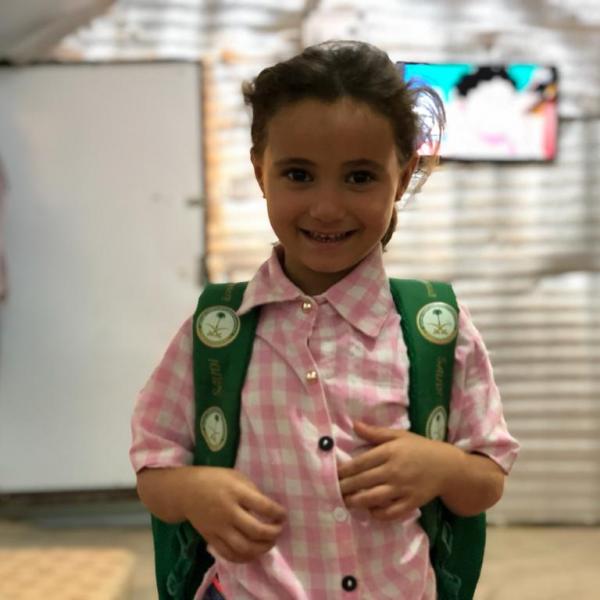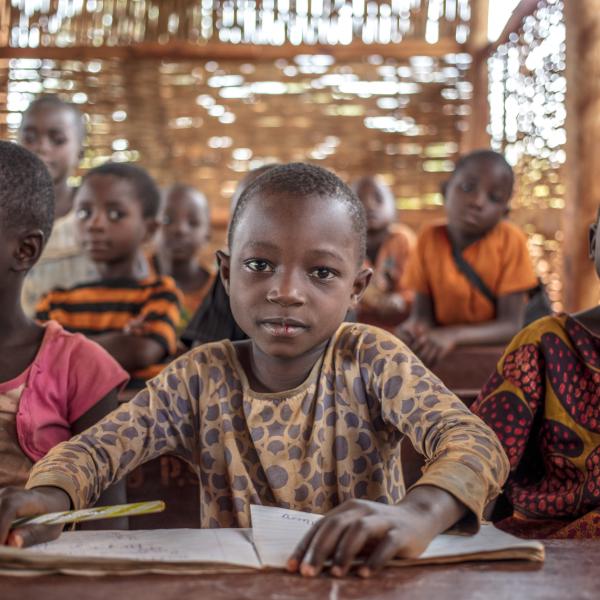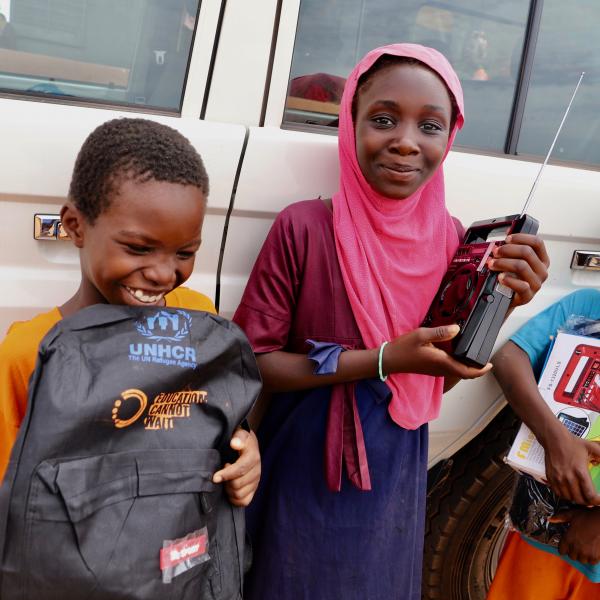Close to half of the world's refugees are under the age of 18. This means that access to education is one of UNHCR's main objectives. Without education, the future of an entire generation of refugee children and youth is jeopardized.
According to UNHCR's latest report on education, only 71% of refugee children attend elementary school.
As these children grow older, the barriers to education will only increase. Only 46% of refugee teenagers are enrolled in secondary school. When it comes to higher education, the situation is even more alarming. Only 7% of refugee youth attend university.
Supporting the education of forcibly displaced people:
- Promote equitable and sustainable inclusion in national education systems for refugees, asylum seekers and internally displaced persons
- Foster safe, enabling environments that support learning for all students, regardless of legal status, gender or disability
- Enable learners to use their education toward sustainable futures


Guaranteeing the right to education
The New York Declaration for Refugees and Migrants says education is key to respond to the ever-growing number of forcibly displaced people. The fourth Sustainable Development Goals (SDGs) aims to "ensure inclusive and equitable quality education and promote lifelong learning opportunities for all".
Access to education is all the more crucial for vulnerable people who have been robbed of their childhood and of their right to an education by either conflict or persecution.

We need your support
UNHCR works in partnership with governments, and international and local organizations to protect refugee children and youth around the world, and to provide them with quality education. Supporting UNHCR means giving young people who have been forced to flee hope for a brighter future.
With its "Aiming Higher" campaign, UNHCR will facilitate refugees’ access to higher education, and will aim to increase the percentage of refugees pursuing higher education from 5 to 15 percent by 2030.